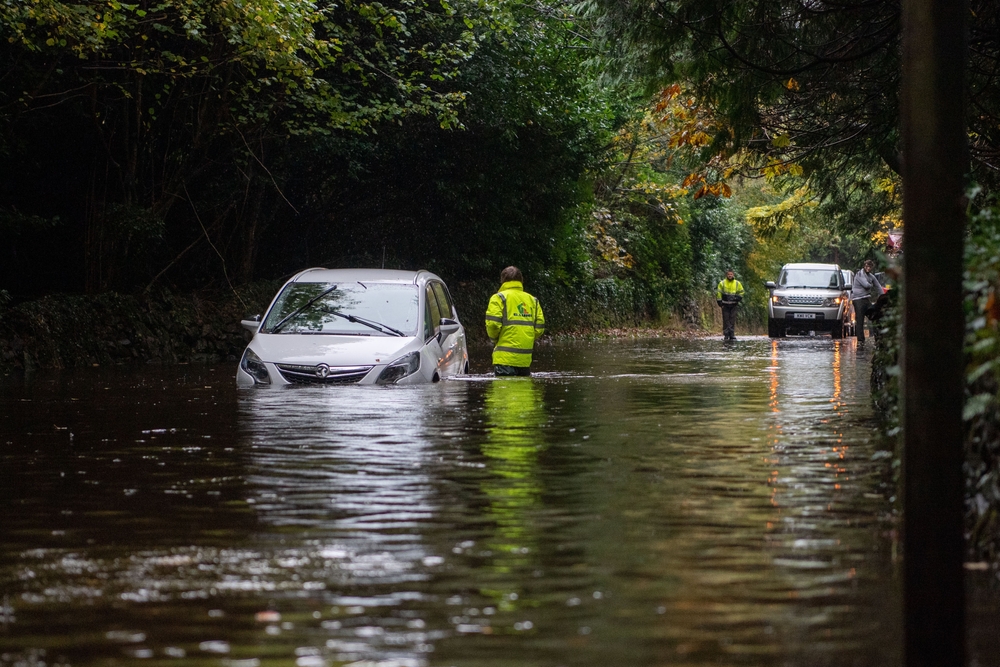
Climate change is a major threat to human health and wellbeing in the UK. Its far-reaching impacts can be seen in various ways, from direct effects like rising temperatures and increased flooding, to indirect consequences such as food and water scarcity, and reduced air quality. Vulnerable populations, including those with pre-existing conditions, the elderly, and underprivileged communities, are likely to be worst affected.
Addressing climate change's health impacts is crucial for protecting public health now and in the future. We released the Health Effects of Climate Change in the UK (HECC) report recently, highlighting the intersections between climate change and health, and presenting evidence on climate-related health risks in the UK.
Here are 9 key ways climate change could harm our health:
- Extremes of heat and cold
More frequent and intense heatwaves due to rising temperatures could lead to a dramatic increase in heat-related deaths. By the 2070s, under a high-warming scenario without adaptation, the UK could see over 21,000 additional heat-related deaths annually. Despite the warming climate, deaths from cold are also expected to rise, mainly due to an aging population.
- Flooding
Climate change is making more areas prone to flooding, including those previously not at risk. Heavier rainfall and rising sea levels contribute to this threat. Flooding endangers lives and can have long-lasting negative impacts on mental health, risk of infectious diseases, and access to healthcare services.
- Poor outdoor air quality
Climate change can worsen air pollution episodes by altering weather patterns and exacerbating heatwaves. Poor air quality is already a significant environmental risk, contributing to cardiovascular and respiratory diseases, and increased mortality.
- Allergies
Longer and more intense pollen seasons for plants like birch and oak, as well as extended fungal spore seasons, could worsen seasonal allergies for sensitive individuals.
- Infectious diseases
Rising temperatures and changing weather patterns may increase the risk of food-borne and water-borne bacterial infections like salmonella, campylobacter, and Vibrio spp.
- Vector-borne diseases
A warming climate could expand the range and survival of disease-carrying ticks and mosquitoes in the UK. This raises the risk of diseases like Lyme disease, tick-borne encephalitis; and potentially even dengue, chikungunya, and Zika if non-native mosquito species establish themselves. Modelling suggests that London is currently suitable for the survival of these non-native species due to temperature levels.
Increased biting from mosquitoes coupled with warming temperatures could also lead to outbreaks of diseases like West Nile virus in the future.
- Wildfires
Climate projections indicate an increased risk of larger, more severe wildfires due to hotter and drier summers. If global temperatures increase by 2°C, the Met Office projects a doubling of days with a high risk of fires in the UK, with the wildfire season potentially extending into late summer and autumn.
- Drought and food security
More frequent and severe droughts driven by low rainfall and higher temperatures could disrupt agriculture, leading to food shortages, price increases, and food insecurity.
- Poor housing
Energy-efficient homes are vital for mitigating climate change and promoting healthy indoor environments. However, improvements must be implemented carefully to avoid issues like poor air quality, overheating, noise, and inadequate ventilation, which can adversely affect respiratory and cardiovascular health, as well as mental wellbeing.
What can we do to reduce these risks?
While everyone is at risk, the most vulnerable individuals will bear a disproportionate burden of some impacts. The severity of these health effects will depend on the emissions pathway we follow and the extent of adaptation measures taken.
Many of the anticipated adverse health effects are still preventable through swift and decisive action.
Here at the UKHSA, we remain committed to addressing the health challenges posed by climate change and leading preparedness efforts to secure a healthier future for all.
Further reading
Read our Adverse Weather and Health Plan
Find out how science can protect us from the health effects of climate change
